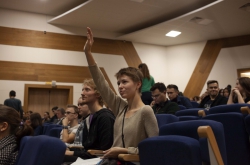On the decision to go to South Korea
Since childhood, I’ve dreamed of studying abroad, and I've always been interested in studying in Asia. When I was in the 8th grade, me and my mother started looking through different opportunities to do so; I thought about Malaysia, but the changes on the exchange market made us reconsider these plans. When I started looking for a Russian university, a university's international partners was among my top criteria. At ITMO University, they advised me to take a semester abroad during my third year. So, I approached the International Office and chose three programs that looked most promising, in Italy, France and South Korea. Naturally, Seoul National University was my top priority.
On education in South Korea
At ITMO University, I follow the Macroeconomic Planning and Forecasting program, and for my exchange semester at Seoul National University, I chose Business Administration. For that reason, I couldn't transfer any credits. Nevertheless, I studied many formulas during my program in Russia that I then came across in Korea, and at Seoul National University, I learned many formulas that I know I will get to learn at ITMO in the future.
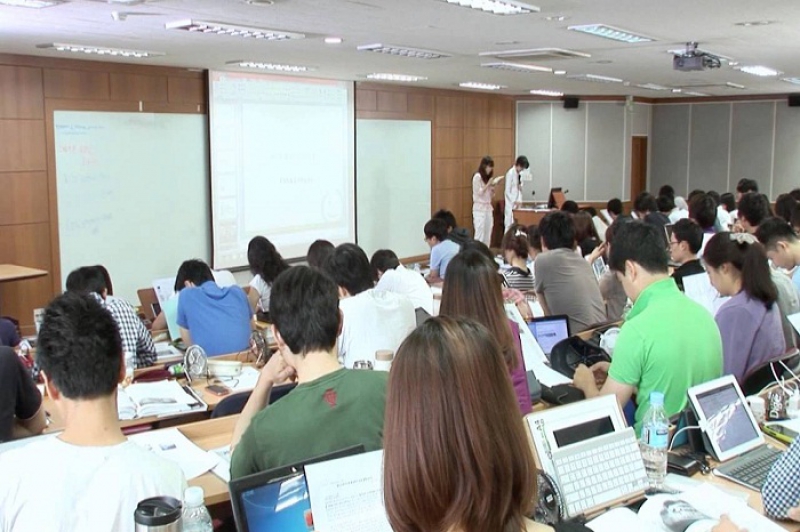
Also, particular things really surprised me. As opposed to education in Russia, where lecturers pay close attention to students' appearance and behavior, students in South Korea can have earphones on during the lectures, and no one criticizes them. At the same time, the community spirit is very important in South Korea, and students seldom interact with lecturers so that they don't attract excessive attention. Such behavior is really different from how European students behave. Nonetheless, the timid Koreans are a lot better at passing exams than international students are. For example, during the modular testing they got twice the number of points in comparison to those who studied on exchange programs.
The exams for visiting students differ from those that Korean students have to take. In order to pass the exam, visiting students have to complete a particular percentage of tasks. The system for Korean students is a comparative one: it is the average score for a particular exam that is used to evaluate the students. In other words, you can solve only 20% of tasks, but if this is the best result in your group, you get an A. For the record, this system is often associated with the high incidence of student suicides in South Korea, as students are constantly forced to measure up to a particular level.
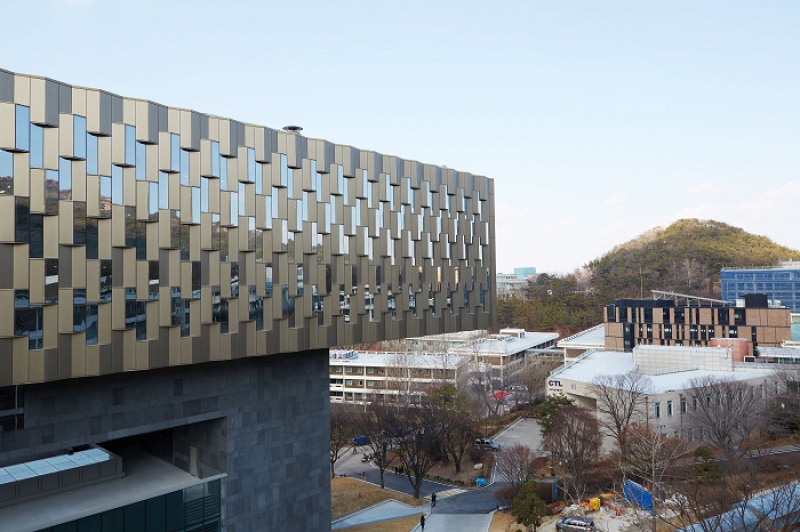
As for the things I found unusual, that would be handing out presentations before the lectures. Here in Russia, presentations are sent to us by mail long before or after the lectures, and not all students use them. In Korea, students print presentations and bring them to the lecture, and they add whatever's missing. Sometimes, lecturers bring and hand out presentations themselves. I think it’s a great thing to do.
On using the library
The library plays a very important role. It is the place where you study. On the first floor, you can comfortably interact with other students, they have a cafeteria and rooms for group work. On the second floor, you have to observe silence, but there are also soundproof rooms where you can communicate. They also have bedrooms there. You can well spend the night in the library if you want to. My peers and myself even had such a challenge. I did that, though instead of the bedroom I spent it at my workplace, as exams were approaching.
What is great about the library is not just the comfort it offers, but also the opportunity to find the people you need, as everyone spends a lot of time there. For example, when I had to clarify an issue related to politology, I knew that the specialist I needed would spend the whole week there before the exams. When anyone needed to find me to ask anything related to Russia, they could also find me there.
I noticed that I came to like studying at the library very much, as people come there to work on common projects, discuss them and so on. When I study at home, I get distracted a lot, and in such places where everyone is busy working, you get really motivated. I would've really liked it if there were more such places in St. Petersburg.
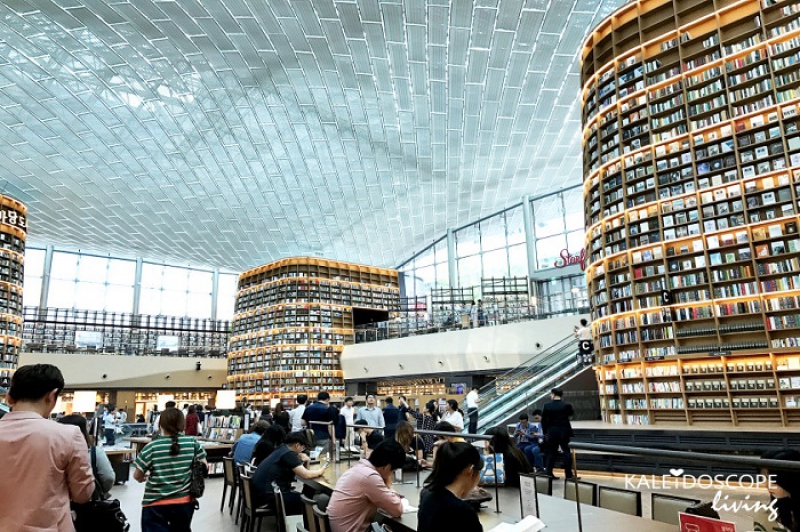
On Seoul National University campus
It has been my first time living in a dormitory, and I really liked it. My room had everything I needed, air conditioning included. I got the room to myself, there were five rooms in the apartment, as well as two toilets and bathrooms. Living with Asians was quite unusual, as they have different habits. For instance, they often cook food in their rooms, which sometimes has a very strong aroma. Many Europeans preferred to live with exchange students, as the locals' way of life is just too different. On the whole, they have everything you might need at the campus: to the point that you don't really have to leave it. There are shops, a gym, a cafeteria, a kitchen, a laundry and so on. Seoul National University will become a great experience to anyone, introverts and extroverts alike.
Tips on living in South Korea
One thing that you have to be ready for is that the local food is very spicy, and everything which is not isn’t Korean cuisine, which means that it'll be more expensive. I really like spicy foods, and nothing was too spicy for me, but some students found it hard to cope with. There's also an issue with meat: Koreans really like pork, they even make sauces from it. If you don't eat pork, or meat in general, that can be a real problem, as Koreans put it everywhere. Chicken is an alternative, but vegetarians will still find it hard to find something to their taste. You should learn particular Korean words in advance in order to understand what particular dishes are made of. For instance, there's a word in Korean that means a particular way of slicing meat, and I had it translated as beef, even though that can be any kind of meat.
On workload and travelling
For those who like to travel, South Korea offers lots of opportunities. The price of a lowcoster to the Philippines or Thailand is about 6,000 rubles. I travelled around South Korea: went to the country's second largest city Pusan and the Jeju volcanic island. I know many students went to Japan and the Philippines.
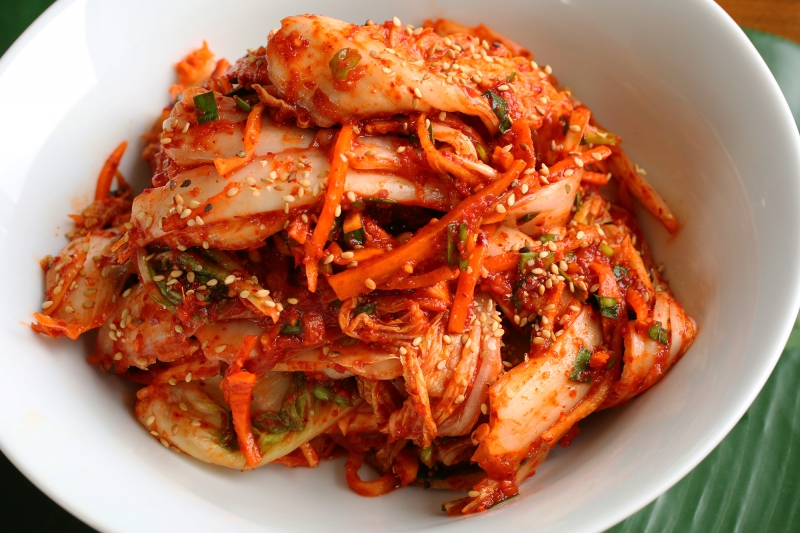
The workload at Seoul National University makes it possible for you to travel without hindering your studies. I chose my subjects and spent three hours on studying every day. Some students from the USA chose less subjects so that they could spend five days a week travelling. When we just came to Seoul National University, the lecturers advised us to enjoy our time in Korea to the fullest. We were allowed to skip each subject thrice. I remember one student who first went to every lesson, and then left for three weeks. I guess he's been to many countries during this time.
On money
I spent a thousand dollars a month, in addition to accommodation and trips to Russia. Sometimes, I had some money left. Still, I have to note that I lived large: I bought clothes, rented accommodation while travelling, bought plane tickets and ate out. I didn't have a scholarship, so I had to cover these expenses myself. I think that when planning your expenses, you have to consider no less than a thousand rubles a day. The dormitory cost me 50,000 rubles a semester, but it was worth it.
On Koreans
There's a great difference between the older and the younger generations. Younger Koreans are very friendly and easy-going: you can easily get the general idea by looking at modern Korean culture. Pink makeup, toys, Korean drama – all of that reflects the attitude of the country's younger generation. Older Koreans are very different: they are more introverted and less friendly. We had lessons of Korean history, and they told us that this largely has to do with the Korean war in the 1950s, after which South Korea survived on American help, and the life of Korean citizens depended on whether American soldiers were ready to feed them or not. The older generation remembers these harsh times, while the youngsters promote a cult of cuteness.

On local laws
Parents have nothing to fear when they send their children to study in South Korea: the punishment for having a fight there is one year in jail, and selling drugs means execution. Thieving is also a rare occurrence, as they have CCTV cameras everywhere, and they really work: I saw how they tracked down and took in a person using those.
On the power of history, nationalism and the need to be considerate
From Korean history lessons, I learned that collective memory is very strong in Koreans, and many of their everyday actions and their perception of different things are determined by their history. I remember how an international student accidentally ordered rice and, as he didn't know what to do with it, offered it to his Koren peer. The reaction was quite surprising: the student was offended, and wrote a wrathful post on Facebook on how particular Europeans misbehave towards the locals by offering them food as if those were paupers. The memory of the time when they were fed by the Americans makes them react like this.
Nationalism is also quite strong in South Korea, even the lecturers draw a line between local students and visiting ones. What's more, they don't let foreigners in some clubs and bars. For instance, they only let us in one club in Pusan (foreigners are forbidden to enter all others), and asked us not to fight. Inside, we noticed that people tried to avoid us, and they certainly weren't set on welcoming us to join them. This is their way of keeping distance.
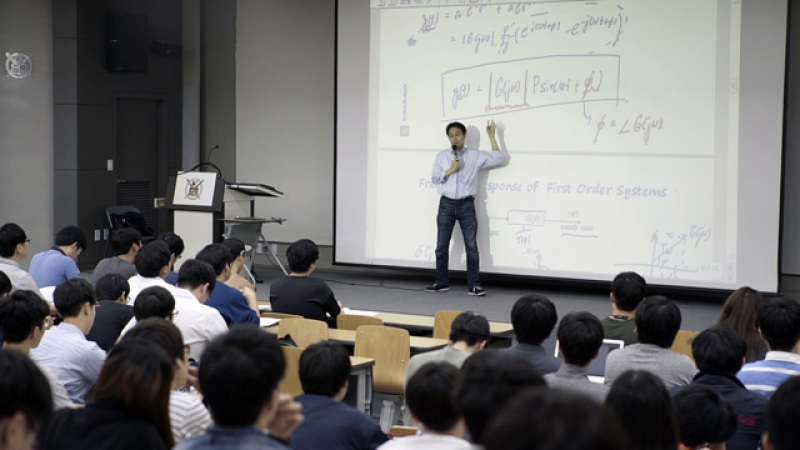
The tactile culture is also different in Korea. For example, my Korean friend was always touching my hand or stroking me just because it's how they usually behave, which sometimes can be uncomfortable for us. Still, though Koreans easily invade each other's personal space, there was a situation when a Moroccan student hugged and kissed a Korean on a cheek as a greeting, and he misjudged it for a romantic gesture. Normally, when I did anything that could be new to Koreans, I told them that it's customary to Russians.
On doing your hobbies at Seoul National University
At ITMO University, you get lots of opportunities to fulfill yourself, be it sports or hi-tech that you're interested in. The same can be said about Seoul National University. There, I continued doing court tennis much as I did in Russia. There were clubs for everyone who had some hobby, even for those whose hobbies involved animals. At our dorm, we had a dog that was given special training to act as stress relief for the students. This was part of a project by the Seoul government, and Seoul National University was the first institution to participate in it.
On Korean startup culture
Despite the education in South Korea having a practical focus, few want to start their own businesses, and those who do speak about cafes and shops. This also has a lot to do with the country's history. In South Korea, they have a limited number of major companies, or chaebol (initially, there were 25 of them, now there are more). They have the right to export their products to foreign markets while other don't, which is why everyone has to develop under the umbrella of these companies. Among such giants are Samsung, which positions itself primarily as a real estate developer, shipbuilding and pharmaceutical company and only then as an electronics manufacturer, the Hyundai company, which took over KIA, and several others. On the whole, there are four companies in South Korea that hold leadership positions, one of them is Lotte Group, a major conglomerate that unites over 60 companies that work in different fields. Most know this company from its name on supermarkets, but you come to understand that almost everything you see in South Korea has to do with it in one way or another.
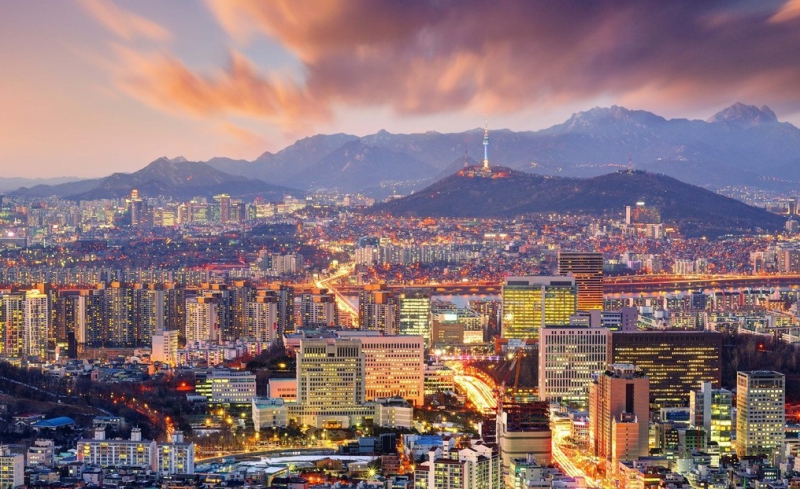
For this reason, it is very hard to develop a startup in South Korea. Virtually, anyone who wants that has two choices: either join an existing conglomerate or enter a foreign market and develop there. So, you will rarely hear that someone has an idea and expects their startup to make it in Korea. Everyone understands that the market is controlled by the major players, and aim to work at their companies. The perception of business in South Korea is very different.





